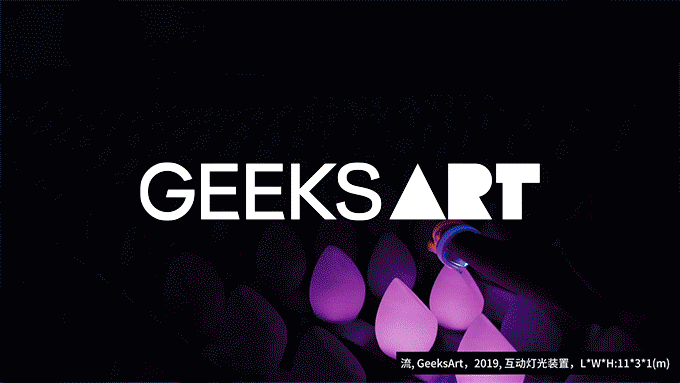MIYAMA专卖店由原传统零售店面扩增至苏州新光天地购物中心,业主期望能在新的场地内设计出展示与品尝清酒的高质量卖场空间。面对四台冰柜的置入需求与物业2.4米以上公共展示区不可动的硬性条件,整合利用好仅30平方米场地中的三面展墙使其自成一体叙述自身主题成为主要设计目标。
The traditional retail store of miyama is expanded to Shin Kong Place in Suzhou. The owner wants to design a high-quality space for presentation and sake tasting at the new store. Four freezers need to be placed and the public exhibition zone above 2.4 meters cannot be changed which is required by property management, so the main design goal is to utilize the three walls in the 30 square meter space so as to make exhibition express its theme by itself.
空间本质的探寻
Exploring the nature of space
清酒是用米和水做成的不可思议的液体,成为日本深具地方特色的一种代表酒,从清酒本身出发寻找其与场地空间构筑关系的推理过程中,在清酒瓶瓶身与日本建筑偏扁平的廊檐文化中找到了平衡点。正如路易斯康所说:“需要容易满足,欲望难以实现”,摆放清酒的功能需求很容易就实现,而空间意欲为何的特质却难以表达,基于他“形式引发功能(Form Evokes Function)”的建筑哲学,清酒卖场的构成元素正是由清酒的形式所引发的,以筒状瓦片单元呼应清酒瓶形态,后将檐文化中瓦片意向转译为筒状瓦片的堆叠搭建方式。
Sake is incredible liquid made from rice and water. It is Japanese typical alcoholic drink with local characteristics. We find a balance between sake bottles and flat eaves of verandas in Japanese architecture when exploring how to arrange sake in the space based on sake itself. Just as Louis Isadore Kahn said, need is easy to satisfy, but desire is hard to realize. The functional need for placing sake is easy to satisfy, but the feature of the space’s desire is hard to express. Based on Kahn’s architectural philosophy of “Form Evokes Function”, components of the sake store are evoked by form of sake. Cylindrical tiles echoes the shape of sake bottles, and the disposition of tiles in eave culture is converted into stacking of cylindrical tiles.
▲清酒瓶与廊檐文化关系分析 Analysis of relationship between sake bottle and eave culture
▲清酒展示墙局部,将檐文化中瓦片意向转译为筒状瓦片的堆叠搭建方式 Part of sake exhibition walls, converting the disposition of tiles in eave culture into stacking of cylindrical tiles
秩序的逻辑呈现
Logical presentation of order
清酒瓶瓶身一共有小、中、大三种尺寸,以中瓶酒瓶身的尺度为起点,推出展示墙瓦片单元的高度,再以大瓶酒瓶身的直径推出瓦片和酒托的直径,酒托的高度平齐两瓦片之间的重叠部分,清酒出现在由筒状瓦片单元构成的网格系统之中,满足了不同规格的清酒展示需求并找到了清酒摆放与展示墙结构单元之间共通的秩序。
Sake bottles have three sizes: small, medium and large. Height of tiles on walls are designed as per the medium size, and diameter of tiles on walls and racks is designed as per the diameter of large-sized bottles. The height of racks is parallel to overlap between two tiles. Sake bottles are placed in the grid system composed of cylindrical tiles, which meets the needs of different bottle sizes and finds the balance between bottle placement and units of exhibition walls.
▲清酒的尺度推出瓦片和酒托的尺度 Sizes of tiles and racks are based on size of sake bottles
▲立面图 Front view
▲清酒摆放与展示墙结构单元之间共通的秩序,balance between bottle placement and units of exhibition walls
设计的具体表达
Concrete expression of design
清酒瓶主要为玻璃和磨砂玻璃两种材料、颜色多样,取包容性最强的超白玻璃和磨砂透光玻璃为空间主要材料来呼应清酒的质感,但出于安全性考虑将展示墙瓦片用磨砂亚克力材质置换磨砂玻璃材质,二者的质感是极其相似的。整个卖场空间沿用了原有冰柜的不锈钢和玻璃材质,这两种材质恰好接近清酒中的“清”的性情,材质本身如水般清澈,是纯净的,也是最具包容性的,需要人们去静心感受它的清冷,似柔似刚。背景墙有多种颜色切换,促使消费者与卖场发生互动,差异化的体验激励消费者拍照分享,达网红效应。
Bottles are mainly made of glass and frosted glass with a variety of colors. The most inclusive super white glass and frosted transparent glass are chosen as the main materials in the space to echo the quality of sake. Tiles on walls are made of frosted acrylic instead of frosted glass for safety, but textures of the two materials are nearly the same. The store continues to adopt stainless steel and glass materials of the original freezers. The two materials are inclusive and as clear as water, which just echoes “purity” of sake. People needs to calm down to feel its beauty with both gentle and strong spirits. Background walls have a variety of colors, which encourages consumers to interact with the store. For example, consumers are inspired by diverse experience to take and share photos, which may make the store Internet famous.
▲功能分析图 Function analysis diagram
▲材质细节 Material detail
▲展示墙灯光互动 Interactive lighting on walls
▲岛台细节 Countertop detail
▲平面图 Plan view
在项目的建造过程中,通过对空间本质的探寻,寻找到了清酒与展示墙结构单元的有机联系,并以清酒的尺度为起点推理出了清酒摆放与展示墙结构单元之间共通的秩序,借由结构系统发展出的展示空间将清酒组织在一个纯粹和谐的秩序中赋予现代性以灵光(Aura)。
During construction of the project, we find the organic relationship between sake and units of exhibition walls by exploring the nature of space, and figure out the balance between bottle placement and units of exhibition walls. The exhibition space developed from the structural system organizes sake in a pure and harmonious way, and brings aura to modernity.
项目信息——
项目名称:清酒道场
设计方:平介设计
联系邮箱:Info@parallect-design.com
项目设计 & 完成年份:2021.05
主创及设计团队:徐萌
项目地址:江苏省苏州市工业园区新光天地
建筑面积:30㎡
摄影:徐英达,徐萌
施工单位:上海燕妮装饰工程有限公司
客户:东瀛三山
Project Information——
Project name:Sake Dojo
Design:Parallect Design (Suzhou Parallect Design Architectural Technology Co. , Ltd.)
Contact e-mail:Info@parallect-design.com
Design year & Completion Year:2021.05
Leader designer & Team:Daisy Xu
Project location:Shinkong Place, Suzhou Industrial Park, Jiangsu Province
Gross Built Area (square meters):30 sqm
Photo credits (needs to credit each):Yingda Xu,Daisy Xu
Partners:Shanghai Yani Decoration Engineering Co. , Ltd.
Clients:MIYAMA GREEN CORPORATION

































